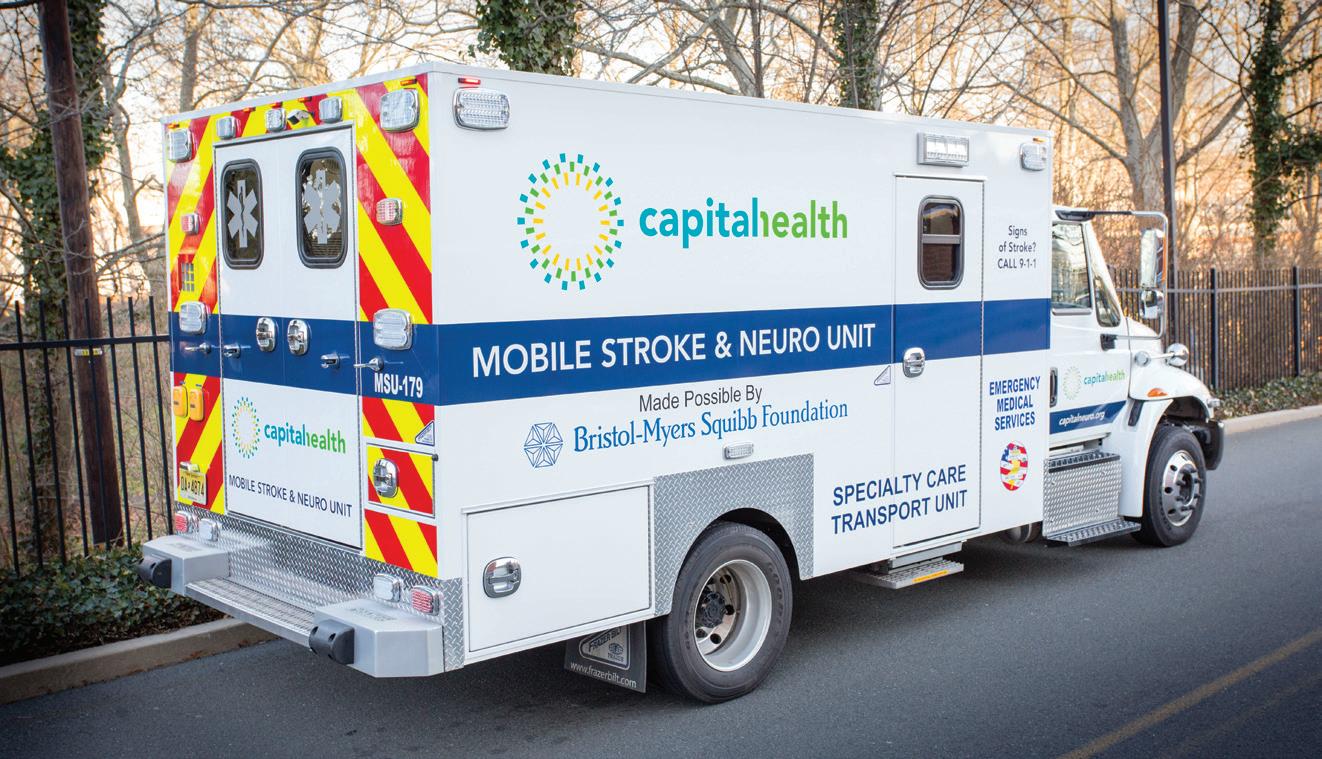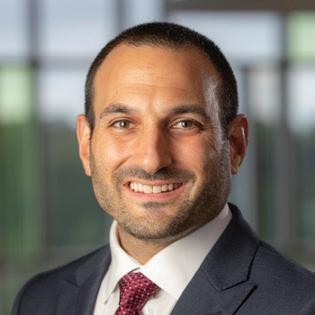
1 minute read
DON’T DELAY: Call 911 If You Suspect a Stroke
from 2-23 LG
“When it comes to treating stroke, we always say ‘time is brain,’ which means that the sooner we can treat you, the better chance we have at a successful outcome,” said DR. DUSTIN ROCHESTIE, director of the Stroke Program at Capital Health. “At Capital Health, we have safety procedures in place to protect you from infection, while making sure you get the immediate, lifesaving stroke care that you need.”
The Stroke and Cerebrovascular Center at the Capital Institute for Neurosciences is a major referral center for the treatment of all types of neurovascular diseases, including cerebral aneurysms, strokes, arteriovenous malformations (AVMs), arteriovenous fistul as (AVFs), cavernous malformations, carotid artery and vertebral artery atherosclerotic disease, intracranial stenosis as well as Moyamoya disease.
The only Joint Commission certified Advanced Comprehensive Stroke Center in the region, located at Capital Health Regional Medical Center (RMC) in Trenton, continues to provide safe emergency stroke and neurovascular services 24 hours-a-day, seven days-a-week during the current health crisis.

“As soon as you call 911, our prehospital alert system allows our team in the hospital to prepare for your arrival, saving valuable time to treatment,” said Dr. Rochestie. “Your call could also activate our Mobile Stroke Unit, which can be co-dispatched with basic and advanced life support service to provide safe, immediate care at your location before you even arrive at the hospital.”
Controllable Risk Factors for Stroke
There are steps you can take right away to lower your risk. Get started by talking to your primary care doctor to learn about stroke screenings and how you can treat or manage controllable risk factors such as:
High blood pressure
… High cholesterol
Heart/blood vessel disease
Cigarette smoking
Visit capitalneuro.org to learn more.
IF YOU SUSPECT A STROKE, B - E F - A - S - T
— Balance
Is the person experiencing a sudden loss of balance?
— Eyes
Has the person lost vision in one or both eyes?
— Face Drooping
Does one side of the face droop or is it numb? Ask the person to smile. Is the person’s smile uneven?
— Arm Weakness
Is one arm weak or numb? Ask the person to raise both arms. Does one arm drift downward?
— Speech Difficulty
Physical inactivity/ obesity/poor diet
… Diabetes mellitus
Atrial fibrillation
Sickle cell disease
Is speech slurred? Is the person unable to speak or hard to understand? Ask the person to repeat a simple sentence, like “The sky is blue.” Is the sentence repeated correctly?
— Time to call 911
If someone shows any of these symptoms, even if the symptoms go away, call 911 immediately. Check the time so you’ll know when the first symptoms appeared.
IF YOU OR SOMEONE YOU KNOW IS EXPERIENCING SIGNS OF A STROKE, CALL 911.








